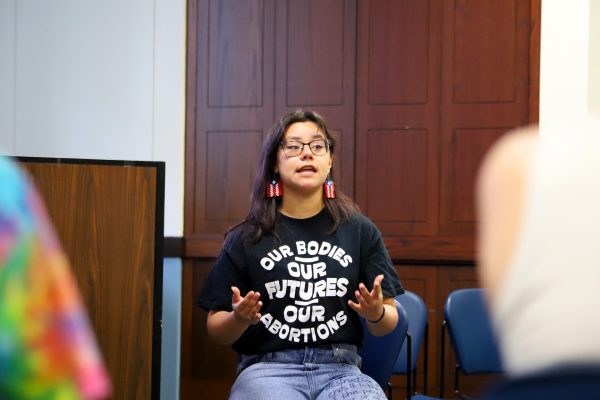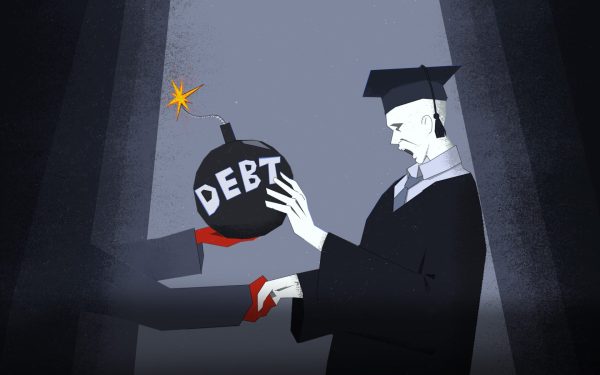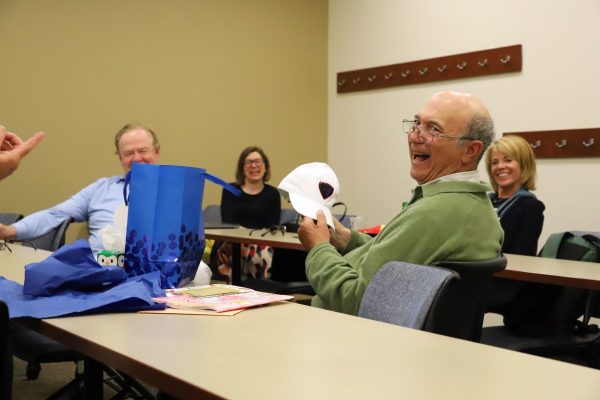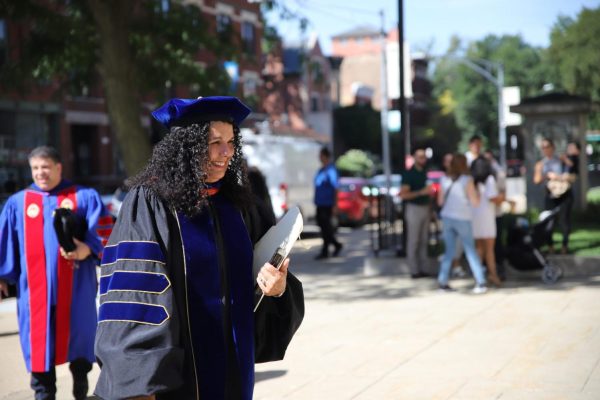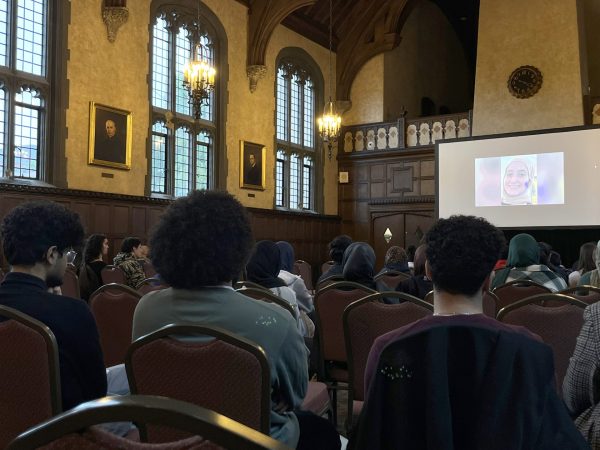DePaul professor writes paper on building anti-racism in STEM
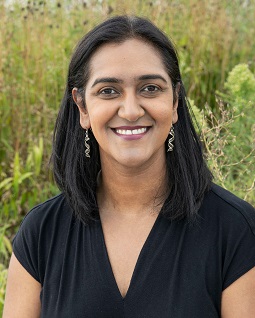
DePaul University / Jamie Moncrief for The DePaulia
Assistant professor Bala Chaudhary, environmental science and studies at DePaul University’s College of Science and Health. (DePaul University/Jamie Moncrief)
DePaul Professor Bala Chaudhary published 10 simple rules for building an antiracist lab that encourages labs to confront racism.
The paper was published on PLOS Computational Biology. The website fosters communication between scientific scholars through publishing.
Chaudhary and co-author Asmeret Berhe were motivated to address racism in the STEM field after this summer’s protests for Black Lives Matter.
“It was exciting to be able to synthesize the existing work that’s out there. For decades, scholars have been studying inequity in STEM. We don’t do that in our paper, but we try to synthesize that body of work in a way that’s digestible for scientists,” Chaudhary said.
“My biggest inspiration [for the paper] is the need to do something to make positive contributions towards diversifying the academy and ensure that we develop and maintain positive workplace climates in the academy for everyone,” Berhe said.
The authors’ rules range from leading conversations surrounding racism and reviewing harmful policies towards BIPOC members. The paper also tackles the issue of gatekeeping in the STEM community.
“We need to diversify student bodies and get engaged with K through 12 students. We know from the research that there’s no gap in interest for students of color, there’s no gap in performance,” Chaudhary said. “So really it’s just how do we create environments that are not toxic to stop pushing students out.”
Gatekeeping the STEM community will also discourage students of color in pursuing education.
“This hostile workplace climate is also shown to be responsible for the reason why students of color drop out at a much higher rate, and even choose not to pursue higher levels of education or enter/remain in the academy as professors,” Berhe said.
“Gatekeeping can manifest as racism. When mentors unintentionally recommend really prestigious opportunities to their white students, but don’t encourage their students of color to apply for some of the same prestigious opportunities, some of this happens entirely unconsciously that who we think of as brilliant, who we think of as the rising star in our labs can sometimes show racial bias,” Chadhaury added.
David Villegas, a DePaul a senior majoring in biology, expresses how microaggressions plague students of color in science classes.
“I believe the most evident way students of color get affected in the lab space is when choosing lab partners,” Villegas said. “In a lab class that is already predominantly white, most of the time students of color are left having to choose another student of color as a partner. This happens pretty often and is an example of microaggression. Another way students of color get affected is by reading journals and literature written by white men only. There needs to be more diversity when it comes to this.”
Students can feel isolated through tone policing, microaggressions and tokenism. Faculty and staff aren’t prepared yet to delve into these topics and how they affect their students.
“Students feel that they have to be the voice of racism in courses, their professors are wholly incapable and unqualified to lead discussions about racism and science. That’s a deficiency faculty are working on addressing,” Chadhaury said. “It doesn’t take a lot for a student to feel unwelcome or isolated in the field.”
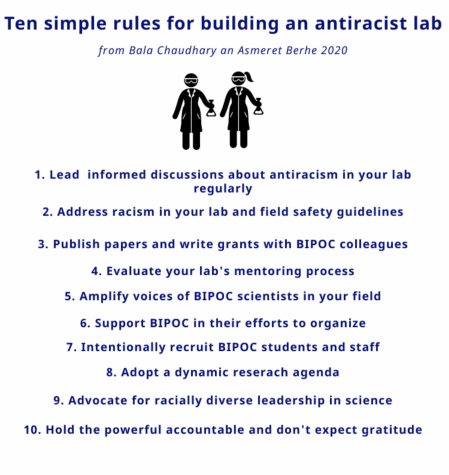
Villegas explains how keeping the conversation centering racism will show interest to their BIPOC students.
“This includes having conversations in lab spaces or any other scientific events,” Villegas said. “Scientific labs play an important role in confronting and addressing racism. By having these conversations, the scientific field shows that they actually care and are not ignorant to what is occurring in our country.”
The authors point out in their paper, “don’t expect gratitude” in rule 10. The rule, “Hold the powerful accountable and don’t expect gratitude” emphasizes a healthy, safe workplace for all members.
“I would say a scientist, we should recognize that it really you know it literally is our job to to educate and train future scientists, and it’s our job to do that in an equitable fashion, particularly with public funds. It’s our responsibility to serve the public, and that means all of the public,” Chaudhary said. “In science, you know we have a responsibility to uphold the values of science integrity.
“We talk about scientific misconduct. We have to ensure that we don’t practice science in any shades of misconduct. Treating people poorly harassing people or upholding racism that threatens the scientific endeavor as well,” she added.
Berhe zeroes in on that antiracist work takes all participants.
“We wanted to highlight that this is critical work that we all need to take part in, and we should do this work solely because it is the right thing to do. We all have an obligation to ensure that academic workspaces are free of bias and harassment, and are safe for and welcoming to everyone,” she said.


